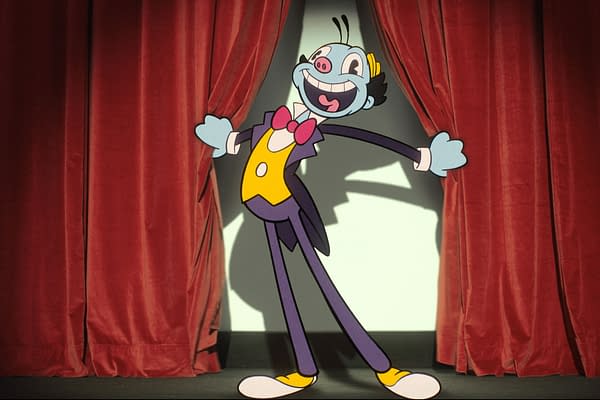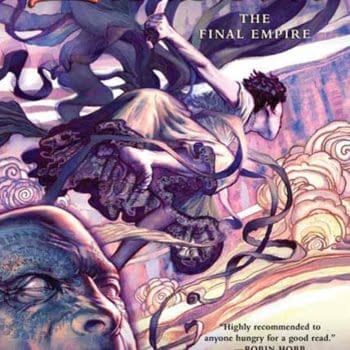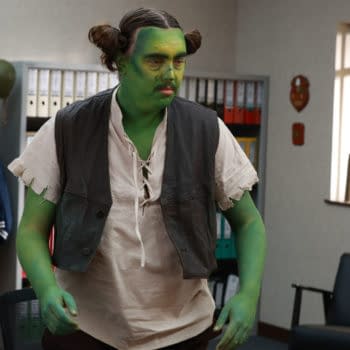Posted in: BBC, Disney+, Doctor Who, TV | Tagged: doctor who
Doctor Who Has One Big Message: The Gods Must Be Crazy (and Evil)
Doctor Who has had a major message running this season and throughout the series' history: gods are evil and must be fought and defeated.
There's a long-running arc in the current two seasons of Doctor Who, and that is that the gods have declared war on the hero (Ncuti Gatwa). Showrunner Russell T. Davies set it up in the 60th Anniversary special "Wild Blue Yonder," where the Doctor blurred the line between reality and opened the door for gods to enter the universe. That enabled The Toymaker (Neil Patrick Harris), the god of games, to return to the universe to have a rematch with the Doctor since their first story from the 1960s, "The Celestial Toymaker". The series has one major theme and message: gods are evil. They want to take from everyone and kill them for fun. They can't be trusted. They must be put down.

When the Doctor defeated the Toymaker in "The Giggle", he warned that his legions were coming. The first to challenge the Doctor was Maestro (Jinxx Monsoon), the Toymaker's child and the god of music. The first season's big bad was Sutekh, another old enemy and the god of death, who killed everyone in the universe until the Doctor killed him to restore life to the universe. In season two, Lux, the god of light, takes the body of cartoon character Mr. Ring-a-Ding (Alan Cumming) to steal the Doctor's bigeneration energy to build himself a real body. More gods will be coming to challenge the Doctor in season two. Mrs. Flood might be one of the gods or connected to them.

There are no nice or good gods in Doctor Who, ever. They're all evil. Even in the old show, whenever the gods showed up, they were evil. The Black Guardian in the Tom Baker and Peter Davison years was pretty much a god that the Doctor was running from. The last time they did it was in the 1980s with the Sylvester McCoy story "The Greatest Show in the Galaxy," where they were the gods of Ragnarok who demanded to be entertained until the Doctor destroyed them. In "Curse of Fenric", Fenric was pretty much a god, considering he's all-powerful and had been dueling with the Doctor since the beginning of Time. And even then, when Ace (Sophie Aldred) asked him who he really was and he wouldn't answer, the writers hinted that he was a god, not just any Time Lord. This was always part of the show's lore. It's openly anti-authority. There are no good gods.
The Gods are Symbols of The Elite
Doctor Who has always had an anti-authoritarian message. People are often taught to trust the gods as if they're authority figures, but the series has always gone against it. The gods don't bring gifts or help people. They only exploit and destroy. The Time Lords were portrayed as god-like and ultimately exposed as complacent and corrupt. The Doctor always fought them. But where's the Doctor's place in this? The Doctor is also a god, but one who chooses to help rather than hurt. Davies was the one who called the Doctor "the lonely god" back in the first revival, so the series under Davies has always been a modern parable, the way stories about the gods are. Gods represent human foibles and flaws rather than ideals of perfection. Thus, the gods in the series are the elite, the rules, the oligarchs, the despots, who need to be defeated, as it's an anti-fascist message. For Doctor Who, atheism is Resistance.
Doctor Who is streaming on Disney+ outside the UK.














